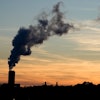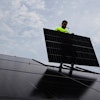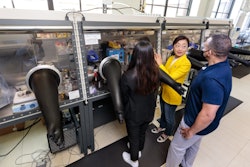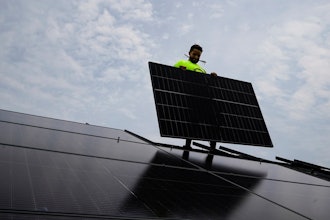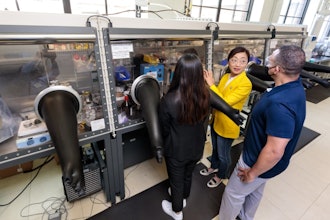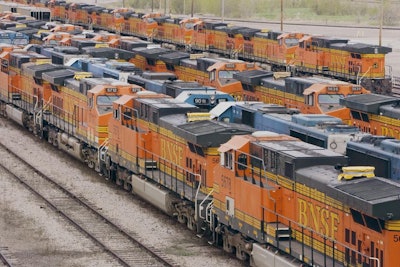
 More than 20 cars on an oil train derailed in rural northeastern Montana, and at least three of them were leaking crude, leading some homes to be evacuated, authorities said.
More than 20 cars on an oil train derailed in rural northeastern Montana, and at least three of them were leaking crude, leading some homes to be evacuated, authorities said.
There were no immediate reports of injury or fire, but of the 21 cars that derailed Thursday evening, only two remained upright, Roosevelt County Sheriff Jason Frederick said.
Authorities had earlier reported just two cars were leaking, but Burlington Northern Santa Fe spokesman Matt Jones updated the number to three in a statement Friday morning. The oil had been contained, and railroad employees were on the scene, Jones said.
The train was pulling 106 loaded crude oil cars when it derailed close to Culbertson near the North Dakota border just after 6 p.m. MDT Thursday. The cars typically haul about 30,000 gallons of oil apiece.
Police, fire and other emergency responders were at the site of the derailment, which forced the closure of U.S. Highway 2, the region's main artery.
The sheriff didn't know how many homes were evacuated but described area as a rural setting with ranch homes spread apart.
The derailment came about six hours after rail traffic started moving again following another BNSF derailment further west near Fort Kipp on Tuesday, the Billings Gazette reported.
Rail officials declined to specify if the train was hauling crude from North Dakota's Bakken oil patch, where growing numbers of shipments have raised safety concerns. Trains hauling crude from the Bakken region have been involved in multiple derailments in recent years, some causing fires.
U.S. transportation officials recently extended an order for railroads to notify states about shipments of hazardous crude-oil shipments and put in place new rules that require sturdier construction of tank cars hauling hazardous liquids. Critics have said the rules do not do enough to keep cars on the tracks and prevent derailments.
Associated Press writers Thomas Peipert in Denver, Matt Volz in Helena, Montana, Matthew Brown in Billings, Montana, and Bob Seavey in Phoenix contributed to this report.
